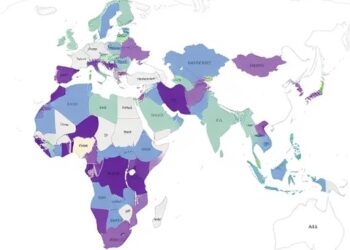A team of investigators from UCLA has identified distinct patient preference-based profiles among men diagnosed with low-risk prostate cancer regarding their treatment options that could help enhance shared decision-making and patient satisfaction in prostate cancer care.
A team of investigators from UCLA has identified distinct patient preference-based profiles among men diagnosed with low-risk prostate cancer regarding their treatment options that could help enhance shared decision-making and patient satisfaction in prostate cancer care.
The study, published in Urology Practice, reveals that while there were clear differences in treatment preferences among the profiles, these preference profiles did not significantly influence the patients’ final treatment choices.
“Men diagnosed with prostate cancer face a variety of treatment options that can have significant long-term effects on their life, making it vital for physicians to better support patients in making informed decisions about their treatment options,” said Dr. Christopher Saigal, professor and executive vice chair of urology at the David Geffen School of Medicine at UCLA and first author of the study. “By identifying and understanding the different preference phenotypes among prostate cancer patients, we can help patients choose the most appropriate treatment based on their personal preferences and circumstances.”
To better understand the different priorities and concerns that influence patient choices, the team collected data from a cohort of 250 men diagnosed with low-risk prostate cancer. These patients used decision aid software developed at UCLA that applied a statistical technique used in market research known as conjoint analysis to assess their preferences for various treatment outcomes. The software measured how much they valued factors such as recovery time, quality of life and survival.
This approach is similar to market segmentation in business, where understanding customer preferences leads to better products and customer satisfaction.
By analyzing these preferences using the Latent Class Analysis method, the researchers identified three distinct preference-based profiles, termed phenotypes, among the group of patients:
- Class 1: Men who were highly concerned about recovery time and less concerned about improving lifespan.
- Class 2: Men with evenly balanced concerns among priorities across different treatment outcomes.
- Class 3: Men who showed the lowest concerns around recovery times and surgical complications, focusing more on longevity and avoiding complications from radiation therapy.
Despite the differences among phenotypes, the researchers found that these preference profiles did not significantly influence patients’ final treatment choices. Instead, the physician’s recommendation played the most crucial role in determining the treatment.
While it is possible that physicians took into account patient preferences when making recommendations in the shared decision-making process that could not be measured with the decision aid software, it was still surprising to the team that preferences for the measured attributes that are relevant for this decision were not associated with treatment choice, noted Saigal.
“Understanding decision-making from the patient perspective will help us partner with patients to make the decision that is right for them,” said Dr. Jonathan Bergman, clinical assistant professor of urology at the David Geffen School of Medicine at UCLA and senior author of the study. “This highlights a need for physicians to better integrate patient preferences into their treatment recommendations.”
Despite this disconnect, the team found patient satisfaction with their care remained high. Decision quality metrics, including low decisional conflict and high satisfaction scores, indicate that patients felt their voices were heard and respected during the consultation process.
The study opens the door for further research into how physicians can better integrate patient preferences data into treatment guidelines and recommendations to better provide more personalized patient care.
“We hope these findings provide insights that can enhance the decision-making process, improve patient-provider communication, and ultimately lead to better health outcomes and patient satisfaction,” said Saigal. “It is also possible that data such as these can be used to improve the patient-centeredness of national guidelines for prostate cancer treatment.”
Both Saigal and Bergman are members of the UCLA Health Jonsson Comprehensive Cancer Center.
The study’s other authors are Brett Hollenbeck, Kristin Williams, Lorna Kwan, Josemanuel Saucedo, all from UCLA, and Dr. David Penson from Vanderbilt University School of Medicine.
Disclosures: Saigal is a board member of WiserCare, the company that produced the software used in this study to measure patient preferences.
Journal
Urology Practice




